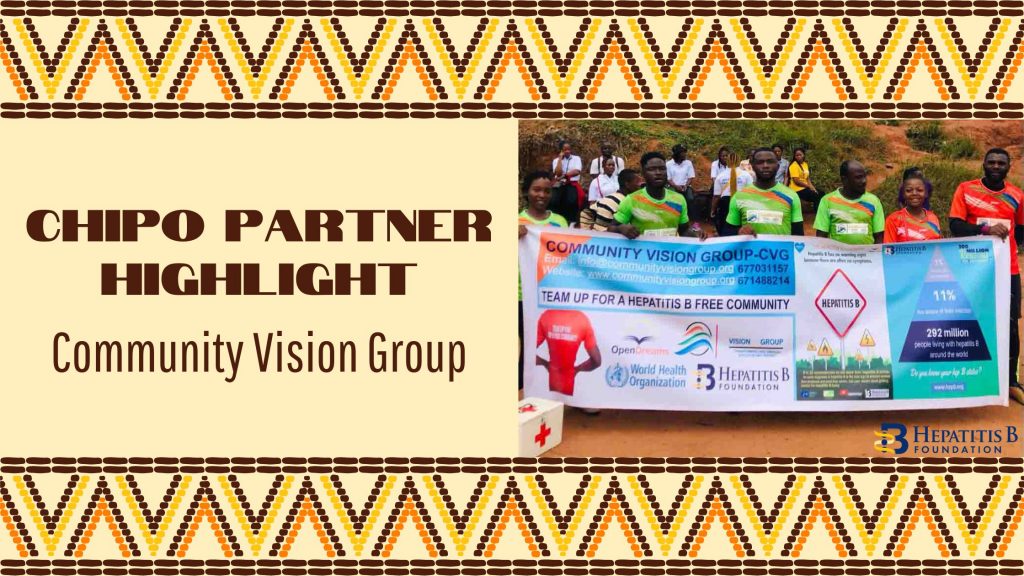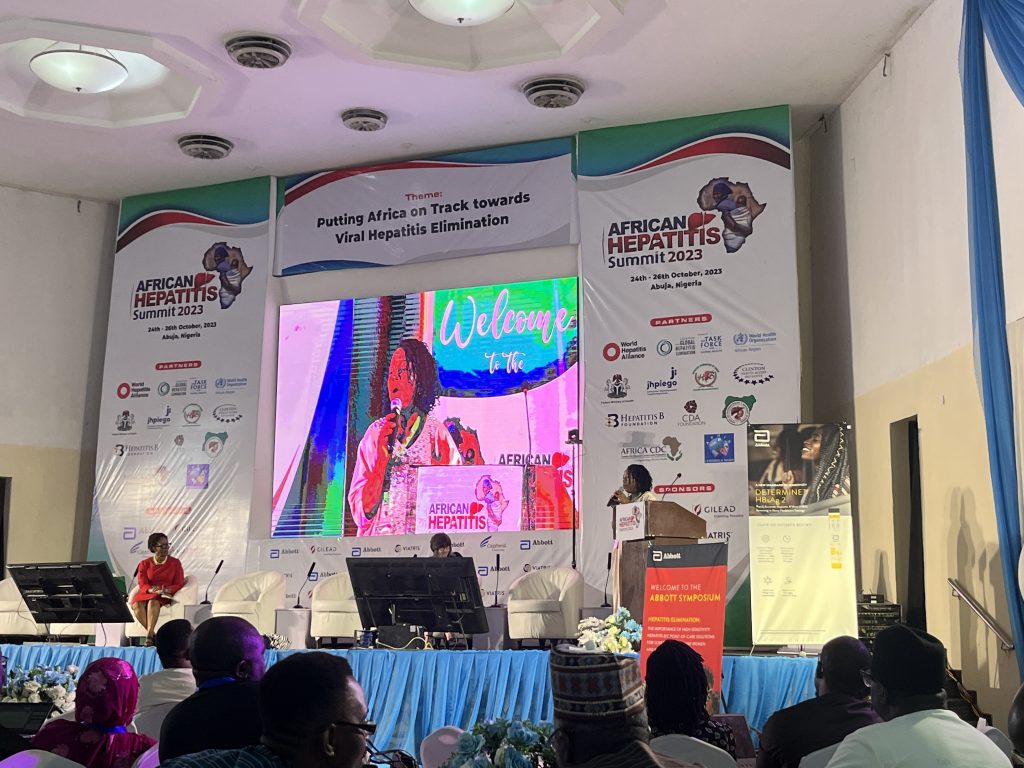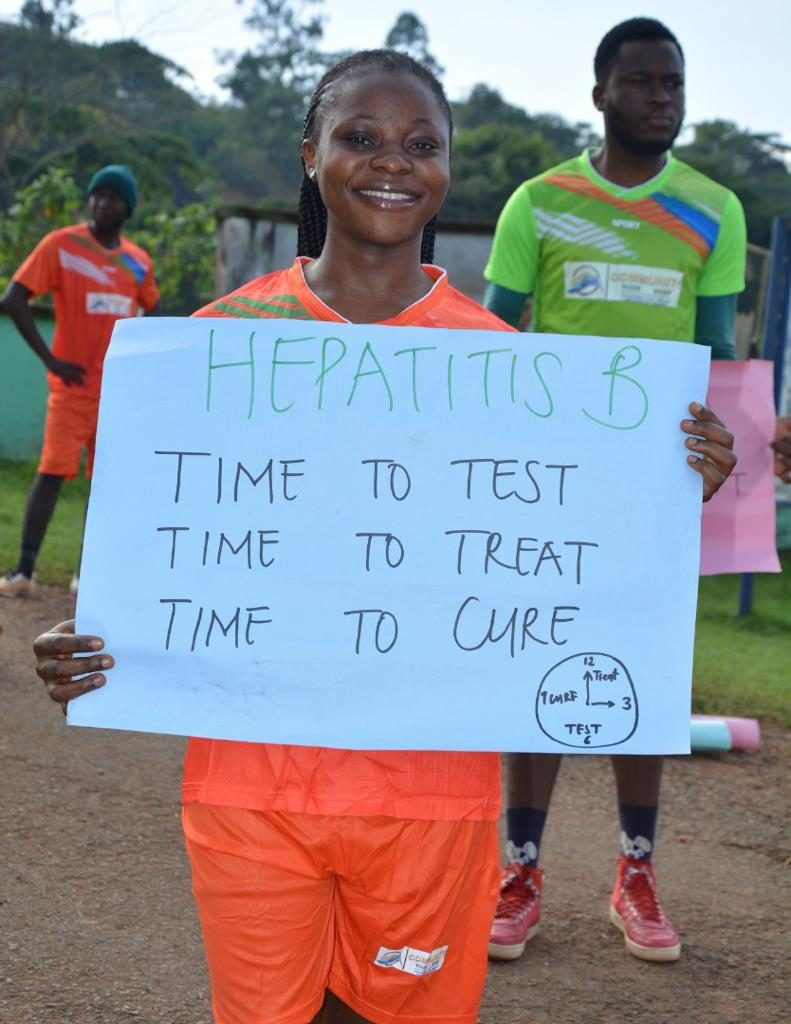
The Coalition Against Hepatitis for People of African Origin (CHIPO) is a community coalition that was co-founded and is led by the Hepatitis B Foundation. CHIPO is made up of organizations and individuals who are interested in addressing the high rates of hepatitis B infection among African communities in the U.S. and globally. Over the past two years, CHIPO has grown its membership to include over 50 community-based organizations and federal agencies, all of which are working to meet the common goals of raising awareness about hepatitis B among African communities, and increasing rates of screening, vaccination, and linkage to care.
This month, we spoke with Richard Makhenjera of Community Vision Group (CVG) Malawi. CVG is dedicated to advancing a poverty-free society where children can live to their full potential by helping transform communities through shared responsibility. They have multiple programs geared towards improving the overall health of children and their families in Malawi and Cameroon. The Hepatitis B Campaign started in 2021 and is one of their health initiatives focused on raising awareness of hepatitis B in communities of Malawi and Cameroon. According to the Coalition for Global Hepatitis Elimination, the estimated prevalence of hepatitis B is 8.39% in Malawi and 4.22% in Cameroon. Richard highlighted some of the organization’s ongoing work to decrease the burden of hepatitis B, barriers to achieving this goal, and his recent experiences at the African Hepatitis Summit that took place in Abuja, Nigeria in October of this year.
Could you please introduce yourself and your organization?
My name is Richard Makhenjera. I work with Community Vision Group Malawi as Program Administrator and Board Member. Community Vision Group (CVG) is a non-governmental organization which is registered in Cameroon, UK, and Malawi.
Could you tell me a little bit about what some of Community Vision Group’s programs are that specifically address hepatitis and other health concerns?
According to a 2022 Chiwindi Survey done in Karonga and Lilongwe, 95% of those interviewed who were living with hepatitis B were not aware of their hepatitis B status (Riches et al., 2023). This shows the gap in awareness. Community Vision Group is addressing hepatitis concerns in Africa, particularly in the context of Malawi, through engaging the public during major hepatitis-related events including World Hepatitis Day, outreach to schools and churches, targeted outreach programs to villages, and engaging in hepatitis B screening.
What is the main geographic area in which Community Vision Group works?
There are twelve districts in Malawi. Currently, we are focusing in Zomba district and surrounding areas as our catchment areas with hope that we can grow and move across the country of Malawi.
What are some of the biggest challenges in addressing hepatitis and other health concerns at the community level? How have you worked to overcome these? Are there any additional resources that would be helpful to have?
The biggest challenge at hand is to take hepatitis messages to the larger masses since our capacity is small in both human and financial resources. The other challenge is reception of messages regarding hepatitis. This is because of both religious and cultural beliefs where some people do not even want to hear any message to do with hepatitis because it is highly linked or related to HIV/ AIDS. There is also resistance when it comes to receiving medical care for those living with hepatitis, as some of them resort to going for traditional healing remedies which can be very dangerous to their health. More awareness work needs to be done.
Additional resources would be very helpful so that CVG can reach the communities with these messages. Examples of these resources would be funding, training materials, printed literature on hepatitis B to distribute to both urban and rural areas, testing kits, and of course availability of adequate health workers in rural hospitals. There are a few projects that would benefit from these additional resources. The first would be to create both electronic and print media so that people are able to access the messages easily. Second, it would help to continue with follow up on those who have tested positive and see if they are keeping up with the counsel given to them by the medical people. Finally, linking suspected cases to appropriate medical centers for testing confirmation with patient consent is another area that could benefit from support.
What do you think are some of the biggest barriers in raising awareness and addressing rates of hepatitis screening and linkage to care at the local, state, and federal levels? Do you think more could be done in these spheres to address this problem?
For Africa, particularly Malawi, the greatest barrier is traditional beliefs (cultural and religious). This is a very serious problem which is the root of most other identified barriers. This is a challenge which requires more awareness for people to change their perception so that they can receive messages related to hepatitis. I think we need to keep engaging the government authorities so that they introduce policies which motivate people to go for screening, and ensure that those found hepatitis B-positive start receiving medical care immediately. The absence of screening centers and medical care givers in rural areas is also another big barrier.
What are your favorite parts about your job?
More of my work in CVG is that of social work which is to engage with the masses in communities. I feel good when people get the right message on certain life-threatening issues and see them responding positively to the message.
Any other thoughts or ideas you’d like to share for improving health and closing health disparities among those in Africa?
For Africa, we are always at a disadvantage in several areas. Our medical facilities are not that user-friendly, and some areas do not even have access to medical facilities. It also takes time for people to get the right information on life-threatening issues. The absence of well-qualified medical doctors in rural medical centers or hospitals is also a threat to our health system. If we in Africa could address these health disparities, Africa would be safe for her citizens.
Can you share a little bit about your recent experience at the African Hepatitis Summit and how that meeting has helped advance your organization’s efforts?
The African Hepatitis Summit provided a platform for me to increase my understanding of viral hepatitis in my capacity as a social and community worker who directly spends more time with the people who have little or no knowledge of hepatitis. After the summit I felt more energized to increase the awareness campaign and other interventions so that this virus is completely eliminated in our communities. As CVG Malawi, this summit is indeed an eye opener as it has added to our intellectual resources and now, we must implement the new ideas learned at the Summit.
I also attended a presentation from Confidence Nchinda, Program Administrator for Community Vision Group Cameroon, on “The Importance of Mother-to-Child Prevention : Perspectives of CVG Intervention in Cameroon.” She spoke from her personal experience with concerns during pregnancy about mother to child transmission (MTCT). She further presented on what CVG does in Cameroon so that there is no transmission from pregnant mothers to their children. For example, they do radio talks and outreach to churches, especially targeting women-led associations. They also engage in talks with pregnant women during antenatal care (ANC) visits in health centers. On radio talks their emphasis is on screening of pregnant women and postpartum periods. At CVG in Cameroon they also have priority actions for the prevention of MTCT. For example, mandatory antenatal hepatitis B surface antigen screening – thus the ongoing program, linkage to care and support for those testing positive to further reduce risk of perinatal transmission – of course, this is yet to start depending on resource availability.
View Hepatitis B Foundation toolkit on preventing MTCT here!
Thank you to Richard for taking the time to discuss CVG’s important work and to the rest of the staff and volunteers for their efforts to reduce the burden of hepatitis B in Africa! Check out pictures of CVG in action below!


Riches, N., Njawala, T., Thom, N. J., Mkandawire, C., Mzumara, W., Phiri, F. P., Banda, L., Stanley, A. J., MacPherson, P., Stockdale, A., Crampin, A. C., & Nkoka, O. (2023). P23 The chiwindi study: results from a community-based hepatitis B serosurvey in Karonga, Malawi. Poster Presentations. https://doi.org/10.1136/gutjnl-2023-bsg.96

